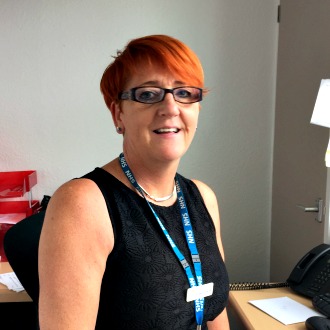There are probably not many GPs who can say ‘this is my third career’. But I can.
I am unusual in that I retrained in my 40s and 50s after a successful career as a psychotherapist and sex therapist, mostly working in the NHS, and prior to that a community worker with a degree in social sciences. I was the first person in my family to go to university.
I never had a desire to become a doctor, and felt passionately that doctors were caught up in models of treatment and care that undermined individuals’ own sense of control of their lives and health. It came as a surprise when I started to notice my desire to know more and more about medicine, how the pills and potions worked, and how the relationship between doctor and patient played out. My interest in the relationship between psyche and soma, the tensions, and the pressures this brings to the patient and the doctor is the reason I decided to retrain. (Plus, I had a cheeky belief that it couldn’t be that difficult).
As a therapist I enjoyed working within strict boundaries with a clear agenda that guided my relationships with patients, and without too much interference from anyone else. When I left to retrain as a doctor computers had yet to take over, and government interference was warming up. GPs had begun to lose control but still felt that the partnership model could shield them against the contracts and targets that successive governments were starting to churn out.
Most of my family and friends were shocked by my decision. Making such a huge career change at the age of 41 goes against the grain, and may have seemed strange when the career I had was going very well. But I was frustrated and wanted a new challenge. My husband had been a junior doctor in the 1980s and felt that the system was harsh, unrelenting, and even dehumanising at times. He worried I would suffer and at points I did, such as when I was bullied by a senior doctor during my F1 year for asking too many questions about patient care.
Medical school marked a massive change in my life. I was a novice – not easy at the age of 41. The emphasis on the acquisition of knowledge, learning a whole different language, and sitting exams (on top of turning up to placements and feeling useless) was a great challenge. Medical students were, on the whole, good fun and took it in their stride that one of their classmates was the same sort of age as their mum.
And doing a full-time medical degree as well as having a busy family life with a husband and three children turned me into an extraordinary organiser and planner.
My family life was difficult during the years as an F1/F2, as often the hospital jobs would not allow leave when needed. But I do think the NHS would be a different place if older people trained as doctors as we tend to speak up more. Life experience and my previous career had given me that confidence.
Limit yourself
I love being a GP, the relationship we build with our patients is at the heart of what we do and I strongly believe that my experience as a therapist is put to good use. I have learnt to work quickly, honing my therapy skills and knowledge to the wide range of situations I face daily. I also work one day a week as a substance misuse GP in secondary care.
Time is our most precious commodity and it’s what we most need to give our patients, but current pressures make this impossible. I think we work best in partnership with our patients but the current political and cultural situation has encouraged a reliance on doctors that is unhealthy and infantilises our relationships with patients. The daily battering of GPs and the health service by the media and politicians coupled with huge workloads and unrealistic expectations by patients will deter many people from coming to work in primary care.
One of the keys to surviving and being happy is to limit the amount of work you do, accept less money, and be true to yourself. Take regular holidays and expect that even with the best of efforts, for some patients it will not always go to plan. Share a joke with your patients, try and be honest but kind, and find a group of likeminded doctors who accept and value your contribution. This has helped me through the difficult days, given me space to decompress, and made me feel part of a team of people who try to put the patient at the heart of what we do every day.
I went to university with the intention of giving 15 or 20 years to my career as a GP. Three years in, however, I think I will re-evaluate this as I go along. The workloads are impossible and we need to be enabling people to manage their own health and encouraging people to use the resources of the health service in a responsible way.
But I love being able to be part of people’s lives, being instrumental at crucial moments with nurses and doctors who are striving to give the best care when patients are often at their most vulnerable. This core motivation led me through a career as a community worker, and as a psychotherapist, and keeps me turning up for work now.
Dr Angelina Perrett is a GP in Sheffield.
Pulse October survey
Take our July 2025 survey to potentially win £1.000 worth of tokens














